Welcome to New Faculty in SBS!
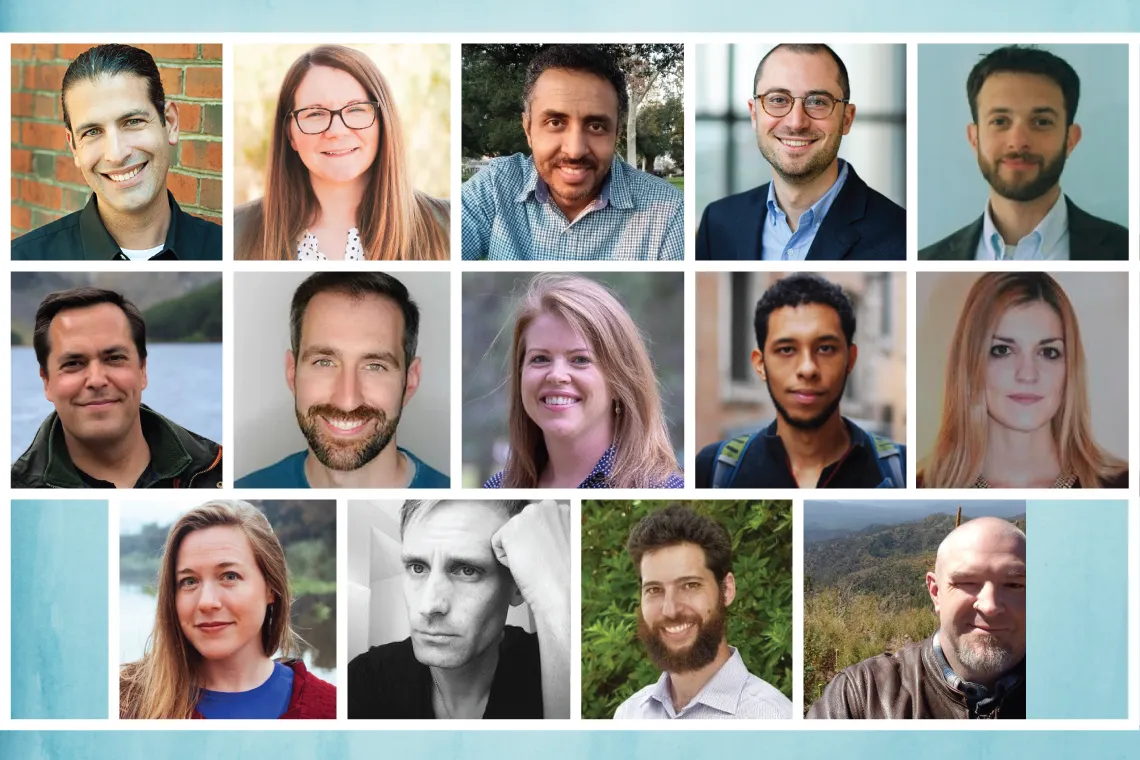
Welcome to our new faculty, whose expertise includes such topics as flood risk, Arabic, political conflict, human rights, trust, how groups function, rational action, perishable material culture, medicine in Latin America, jail to community transitions, religious conversion in Indigenous communities, judicial politics in the European Union, the impact of climate change on biodiversity, and noninvasive brain stimulation!
Muhammad AlKhudair
Lecturer, School of Middle Eastern & North African Studies
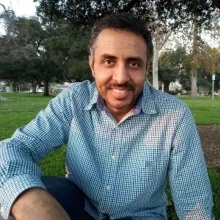
Muhammad AlKhudair came to the University of Arizona as a Fulbright Foreign Language Teaching Assistant in 2010 before working as instructor of Arabic from 2014 to 2018. At the University of Arizona, AlKhudair developed material for Flagship Program students to help them advance from intermediate-mid to advanced level.
AlKhudair also taught at the University of Southern California from 2019 to 2021, worked as an English language lecturer at Kalamoon University in Syria from 2006 to 2008, and worked as a language teacher for the Syrian Ministry of Education from 2002 to 2005. AlKhudair is also a certified translator by the Syria Ministry of Justice. He has a master’s degree in Middle Eastern Studies and a B.A. in English/Arabic translation.
Daniel Arnon
Assistant Professor, School of Government & Public Policy
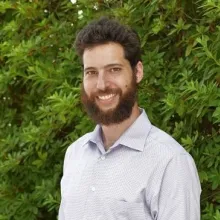
Daniel Arnon is a principal researcher for the Political Terror Scale, an index of state violations of physical integrity rights. His research focuses on conflict processes between individuals and the state, including individual violence against the state, namely terrorism and insurgency, and state violence against individuals, namely human rights violations and repression. His recent research focuses on the sources of lone actor political violence and its political consequences, the politicization of and biases in measuring human rights violations, how identity politics shapes tolerance for repression, and the dynamics of social cohesion and state repression, particularly in the context of the Israeli-Palestinian conflict.
Arnon’s work has appeared in the British Journal of Political Science, the Journal of Human Rights, and Conflict Management and Peace Science. He earned his Ph.D. in political science from Emory University and a M.Sc. from the London School of Economics.
William (Zev) Berger
Assistant Professor of Practice, Department of Political Economy & Moral Science
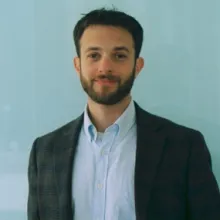
Zev Berger’s work looks at political theory and psychology in various forms, attending to matters like affective trust, democratic theory, and political inequality. His work is intentionally cross-disciplinary and multi-method, synergizing both qualitative and statistical empirical analysis with conceptual theory.
Berger holds a Ph.D. in political science from the University of Michigan and previously served as a postdoctoral fellow with the Philosophy, Politics, and Economics Program and as a senior research analyst with the Center for High Impact Philosophy, both at the University of Pennsylvania.
Daniel Charbonneau
Assistant Professor of Practice, School of Information
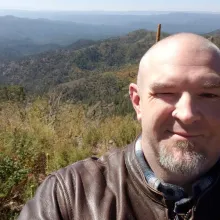
Daniel Charbonneau’s research aims to understand how groups function, and often excel, because of and in spite of the individuals that compose them. He is interested in how work is allocated in decentralized complex systems, particularly in the role of ‘task-less’ workers (‘inactive’ and ‘interactive’ workers) in task allocation. He is also interested in how colonies adjust workers to workload in dynamic environments, as well as cases where colonies seem inflexible, even to their detriment.
Daniel has a Ph.D. in entomology from the University of Arizona. Prior to joining the UArizona's School of Information, he served as postdoctoral research scholar at ASU and postdoctoral researcher at the University of Pennsylvania.
Anthony (Thony) Gillies
Professor, Department of Philosophy

Anthony (Thony) Gillies is the Sherwin Scott Professor of Philosophy. He received his Ph.D. from the University of Arizona in 2001 and investigates how rational(ish) but imperfectly informed agents communicate about and operate in an unpredictable world full of other agents. This cross-cuts topics in formal semantics, logic, formal epistemology, and various parts of the decision sciences. Prior to returning to UArizona, Gillies was a member of the philosophy department at Rutgers for 11 years and has held appointments at the University of Michigan, Harvard University, and the University of Texas at Austin.
Edward Jolie
Associate Professor, School of Anthropology and Associate Curator, Arizona State Museum

Edward A. Jolie is an associate professor in the School of Anthropology and the new Clara Lee Tanner Associate Curator of Ethnology at the Arizona State Museum. His scholarly interests include the archaeology of the Americas (with particular emphasis on the desert west), past and present sociocultural diversity, perishable material culture globally, Native American-anthropologist relationships, and ethics in anthropology.
Being of mixed Oglala Lakota (Sioux) and Hodulgee Muscogee (Creek) ancestry and an enrolled citizen of the Muscogee (Creek) Nation of Oklahoma, Jolie strives to cultivate collaborative relationships and research partnerships with Native Americans and other descendant communities. Jolie is also in the process of re-establishing his Perishable Artifact Laboratory, one of a handful of labs globally that specializes in the documentation and analysis of perishable material culture such as textiles, baskets, nets, and footwear.
Ryan Amir Kashanipour
Assistant Professor of Practice, Center for Latin American Studies and the Department of History
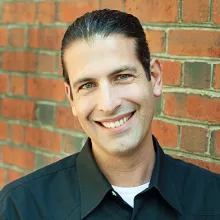
Ryan Amir Kashanipour is an interdisciplinary scholar of medicine and science in Latin America and the early modern Atlantic world. His research examines the intersections of experience and epistemology in the production of knowledge and institutions of colonial authority related to disease, health, and the body. His book Between Magic and Medicine: Colonial Yucatec Healing in the Spanish Atlantic World explores the formation of robust indigenous Maya and inter-ethnic social and intellectual networks of sickness and healing during the recurring epidemic and ecological crises of colonial Yucatán.
Kashanipour also has research and teaching interests in food history and co-edits The Recipes Project, an interdisciplinary forum dedicated to historical recipes of all sorts, medical, magical, and culinary. He holds a Ph.D. in history and a master's of library and information science from the University of Arizona.
Carrie Ann Langley
Assistant Professor of Practice, School of Sociology
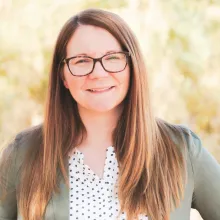
Carrie Ann Langley examines transitions from rural jails to rural communities for adults who experience mental illness. Langley’s current work examines the health policy aspects of rural mental health reimbursement.
Langley has been a practicing nurse for 16 years and is an Army Veteran, having served 8 years in the Army Nurse Corps. She completed her Ph.D. from the University of Arizona College of Nursing in 2020, holds a master’s in public health, and is pursuing her doctorate of nursing practice in psychiatric mental health. Langley is a recipient of the Future of Nursing Scholarship from the Robert Wood Johnson Foundation for her Ph.D. She serves on the board of a rural border health nonprofit, the State of Arizona Committee on Probation, as a Public Health Accreditation Board (PHAB) site surveyor.
Elisa Marchi
Assistant Professor of Practice, Human Rights Practice
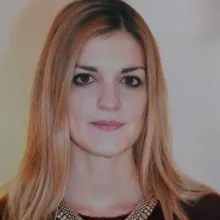
Elisa Marchi has worked for several NGOs and legal clinics as a consultant and researcher in a vast range of topics, including minority and Indigenous rights, environmental rights, transitional justice, the rule of law, democracy in the Middle East and North African region, women rights, and inmates' rights. Recently, she was a visiting human rights lawyer at the Inter-American Commission on Human Rights. Her current area of academic interest is at the intersection of legal study, conservation study, multiculturalism, and collective rights.
Marchi holds a Master of Laws (LLM), graduating cum laude from the University of Florence, a master's in human rights and conflict management from the University of Sant'Anna, Pisa, and a Ph.D. in legal studies from the University of Florence. She was a visiting scholar at the University of Kansas, Brunel University, Centro de Investigación y Estudios Superiores en Antropología Social, and the Indigenous Peoples Law and Policy Program at the University of Arizona.
Kathleen O’Brien
Assistant Professor of Practice, Center for Latin American Studies and the School of Anthropology
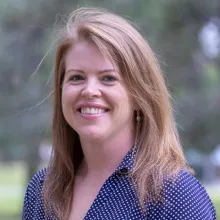
Katie O’Brien's ethnographic research examines the multi-generational effects of religious conversion from Catholicism to evangelical Christianity in Indigenous communities in the Ecuadorian Andes. Her teaching interests include Latin American studies, gender, sexuality, feminism, religion, race/racism, and social justice. O’Brien is also project coordinator for the Study of the United States Institute (SUSI) on Leadership for Indigenous and Afro-descendent Women. This short-term international program brings Latin American university students to the Center for Latin American Studies to study U.S. history and society with a focus on feminism and other forms of social justice.
O’Brien holds a Ph.D. in anthropology from the University of Illinois, Urbana-Champaign and a Master of Arts degree in Latin American Studies from the University of Arizona.
Tommaso Pavone
Assistant Professor, School of Government & Public Policy
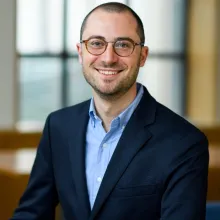
Tommaso Pavone’s research and teaching interests span across comparative politics, law and society, and judicial politics. Much of his work focuses on the European Union and traces how lawyers and courts impact social change and shape processes of political development like state formation and transnational integration. His research has been published in several leading peer-reviewed journals such as The American Political Science Review and Law and Society Review, and his forthcoming book with Cambridge University Press – The Ghostwriters: Lawyers and the Politics Behind the Judicial Construction of Europe – has won several awards.
Pavone received his Ph.D. in 2019 from the Department of Politics at Princeton University and from 2019 to 2021 he completed a postdoctoral fellowship at the PluriCourts Centre at the University of Oslo in Norway.
Cristian Román-Palacios
Assistant Professor of Practice, School of Information
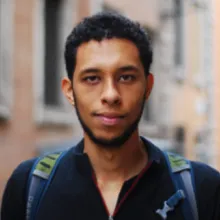
Cristian Román-Palacios uses statistics and bioinformatics to address questions at the interface between ecology and evolution. His research interests are related to phylogenetics, systematics, conservation biology, and the effects of climate change on biodiversity at different spatial and taxonomic scales.
Román-Palacios previously worked as staff researcher at Aradhna Tripati's lab at UCLA developing Bayesian regressions for paleoclimatic reconstructions. His Ph.D. from the University of Arizona is in macroevolutionary patterns across the Tree of Life and climate-related recent biodiversity loss.
Joseph (Jay) Sanguinetti
Assistant Research Professor and Assistant Director, Center for Consciousness Studies

Jay Sanguinetti received his Ph.D. in cognition and neural systems in 2014 from the University of Arizona. His doctoral research focused on neural oscillations related to visual perception and feedback models of vision. He has been at the forefront of the growing field of transcranial ultrasound for human neurostimulation, conducting one of the first human experiments to date showing that ultrasound can enhance mood in healthy participants
Sanguinetti has served as a research assistant professor at the University of New Mexico, directing the NICE Lab (Non-Invasive Cognitive Enhancement Lab) and a postdoctoral fellow for the Army Research Labs, where he investigated neuromodulation and mindfulness training. For more on the Sonication Enhanced Mindful Awareness (SEMA) lab and mindfulness practice, please visit https://semalab.arizona.edu/
Beth Tellman
Assistant Professor, School of Geography, Development & Environment
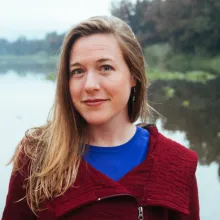
Beth Tellman is a human-environmental geographer, seeking to address the causes and consequences of global environmental change for vulnerable populations, with a focus on flood risk and land use change. Tellman co-founded Cloud to Street, a public benefit corporation that leverages remote sensing data to build flood mapping and monitoring systems for low- and middle-income countries. She received her Ph.D. in geography from Arizona State University, where she leveraged remote sensing data to quantify the role of illicit transactions in urbanization and deforestation in Mexico and Central America.

